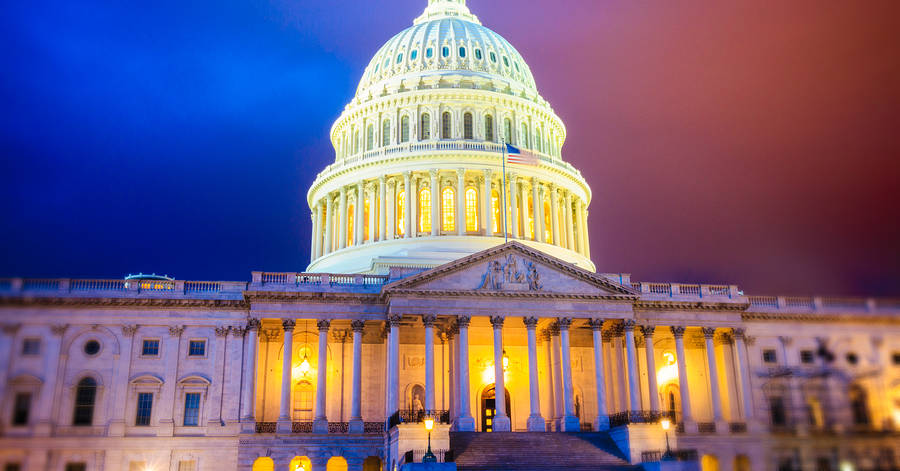By: Editorial Board – wsj.com – December 17, 2017
Republicans are poised this week to cut taxes for most American workers and businesses, fulfilling a core campaign promise. But before the House and Senate vote, it’s worth noting that they may do so without a single Democrat in support. How has the party of the Kennedy tax cuts of the 1960s and the co-writers of the Reagan reform in the 1980s become implacably opposed to pro-growth tax policy?
A little history shows how remarkable this is. The Kennedy marginal tax-rate cuts were pushed by White House economist Walter Heller and powered the economic expansion for another half-decade. In the 1981 tax debate, William Brodhead of Michigan and other Ways and Means Democrats offered an amendment that cut the top rate on investment income to 50% from 70% in the first year.
The 1986 tax reform was driven as much by Democrats as by Ronald Reagan. Dick Gephardt and Dan Rostenkowski helped move it through the House, and Bill Bradley was a leading architect in the Senate. Thirty-three Democrats voted for the bill that passed the Senate 74-23 and cut the top marginal income tax rate to 28%.
Bill Clinton raised taxes in 1993, but after his re-election he compromised with Newt Gingrich in 1997 to cut the capital-gains tax rate to 20% from 28%. That drove investment and growth through the rest of the decade. Even as recently as 2001, a dozen Democrats in the Senate and 28 in the House compromised with George W. Bush to cut the top income-tax rate to 35%.
Yet this year not a single Senate Democrat seems willing to vote to cut the top rate a mere 2.6-percentage points to 37% or reform a corporate tax code that Democrats have long recognized is anti-competitive. Had they engaged with Republicans to provide 60 votes, they surely could have influenced the bill.
They might have saved most of the state-and-local tax deduction that helps Democratic states keep taxes high. Now Democrats in New Jersey and California are left to moan that perhaps they’ll have to stop raising taxes on high-earners. Or perhaps Democrats could also have proposed eliminating the corporate tax in return for a long-time progressive priority like a carbon tax. Instead they chose total resistance, and policy irrelevance.
Part of the explanation is ideological. The Democrats as a party moved sharply left during the Obama years—on economics nearly as much as on identity politics. They have made income inequality their main economic priority rather than growth, and the fact that the slow-growing Obama economy increased inequality hasn’t changed that obsession.
One result is that there isn’t a pro-business Democrat left in the Senate, except perhaps on energy policy in fossil-fuel states like West Virginia and North Dakota. Democrats are now the party of Thomas Piketty, the French economist who thinks tax rates should return to pre-Kennedy levels to reduce inequality.
Democratic economists who might have offered an alternative view have no choice but to go along if they ever want to serve in another Democratic administration. They all saw what Elizabeth Warren and the Democratic left did to block Larry Summers from getting the job of Federal Reserve Chairman.
The other explanation is the political calculation that opposition will help Democrats retake the House and Senate in the 2018 midterm elections. President Trump is unpopular, and they figure his polarizing behavior will drive enough Democrats in the polls to save Senate incumbents even in states that Mr. Trump carried in 2016. Heidi Heitkamp (North Dakota), Joe Donnelly (Indiana) and Claire McCaskill (Missouri) figure that the safer play is to oppose all things Trump and mobilize the base vote.
Perhaps that bet will pay off, but then they are also betting that tax reform will fail to increase growth and wages. If it does succeed in spurring the economy, they will have had no stake in that success. Republicans will surely point that out, especially if the popularity of the tax bill rises once voters see the results in higher after-tax income.
Whatever the political results next year, this Democratic left turn isn’t good for the country. The U.S. has historically prospered when there is a growth wing in both major political parties. A Democratic growth wing is all the more important because the GOP is developing an income-redistribution wing led by Florida Senator Marco Rubio that has watered down the growth elements of this tax reform and almost scuttled it.
After the slowest expansion in decades and tepid wage growth, Americans should want this tax reform to succeed and it’s a shame Democrats are rooting for failure.
 Listen Online
Listen Online Watch Online
Watch Online Find a Station in Your Area
Find a Station in Your Area










 Listen Now
Listen Now Watch Online
Watch Online
